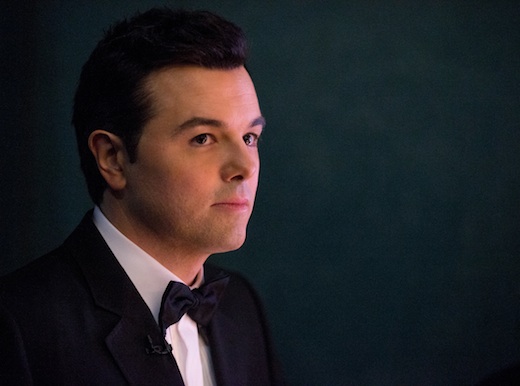
“If I had heard seven years ago that MacFarlane was coming out with a new show like the upcoming Bordertown, I might have been excited. But I came to understand the formulaic and usually tired comedic delivery of the MacFarlane animated sitcom a long time ago.” —Joe Antoshak
There was a time in the mid-2000s when Seth MacFarlane’s Family Guy was one of the funniest shows on TV. Every episode was more fast-paced, provocative and unrelenting than anything I’d ever seen. It was like a socially conscious The Simpsons, a more mature South Park.
For me and many of my peers, this era came right about fifth or sixth grade. We were young — not even in the throes of puberty yet. But for the first time in our lives, we believed we were seeing the world as adults do.
Eventually, though, we grew up, and our perspectives changed.
If I had heard seven years ago that MacFarlane was coming out with a new show like the upcoming Bordertown, I might have been excited. But I came to understand the formulaic and usually tired comedic delivery of the MacFarlane animated sitcom a long time ago. The material lost its edginess and started feeling dry. Sure, watching an episode here or there was tolerable enough, but watching multiple episodes a day was like having your skull X-rayed over and over with no lead to help block the damage.
So I branched out. I explored new realms of comedy, including other projects spearheaded by MacFarlane. I found that Family Guy was uncontestedly his finest creation, and that his other shows, which include American Dad! and The Cleveland Show, were merely cheap spin-offs with nearly the same punch lines. The seeds of repugnance toward MacFarlane took root.
In 2012 came Ted, a surprisingly redeemable directorial debut from MacFarlane. It was certainly overhyped — a plague that seems to consistently follow his work — but it had some strong comedic moments. These could have resulted more from casting Mark Wahlberg and Mila Kunis, though, as it is impossible to condemn any body of work in which either appears.
Then MacFarlane voided any chance of absolution with his hosting of the Oscars in February. It was a solid performance technically but also a case study of everything wrong with his comedy. The essential MacFarlane came out: a talented, handsome and ambitious man with a hackneyed sense of comedy who can’t stand on his own two feet without using racial and sexual insensitivity as an easy crutch.
With the understanding that great comedy should be a uniquely humorous perspective on something we’re familiar with, MacFarlane has solidified his position as its antithesis. He is about as commercial as comedy gets in 2013, partly because his jokes are funny on a vacuous surface level and mostly because he churns them out like a one-man factory. But even these aren’t necessarily things for which to hate him.
Instead, consider his smug attitude, patriarchal tendencies or the infinite number of cutaway scenes he uses to try to make Family Guy clever. Then think of the millions of dollars that make up his net worth. Last, remember the ways you’ve contributed to this large sum and let the frustration seep in.
MacFarlane’s new show, Bordertown, which is set to premiere next year on Fox, will be more of the same nonsense that has come to typify his body of work. This time, however, it will use racism in regard to immigration as the butt of the jokes of every single episode. But even this could possibly be enjoyable if it were created by someone willing to try something different.
Instead it will likely be the same old MacFarlane — the same joke we’ve heard a thousand times before and the same one we’ll hear a thousand times more. He’s a cancer we just can’t get rid of: not the comedian we need, and definitely not the one we deserve.



